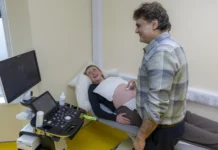Did you know that one in six adults have literacy difficulties in Ireland? Did you know that one in six Irish adults are at or below level one on a five-level literacy scale?
This leaves them often not understanding basic information that they need in every day life.
At NUI Galway second year English students are aiming to help children receive better literacy skills to enable them to not only enjoy reading when they are older but to allow them to acquire an extremely important life skill.
Reading is critical because a great deal of formal education depends upon being able to read with understanding.
Children who have reading difficulties will inevitably run into educational difficulties, which ultimately leads to a social and economic disadvantage. However, this can be prevented with the precise intervention.
The second year English students are aiming to improve literacy levels in children through fun and effective service learning. This involves people from a variety of backgrounds coming together to share a common bond in literacy, but hopefully coming away with more than just learning to read effectively.
Service learning offers students the opportunity to engage with the local community through a work placement in a local primary school called Scoil Bhride, located in Shantalla, Galway City, in order to develop practical skills and experience in the field of literacy and reading support.
By choosing this module, the students from NUI Galway gain work experience and knowledge which will further qualify them for future academic and professional development.
Also during their studies, the second-year students will learn how to listen to the voices of school students, how to develop strategies and techniques to overcome literacy and reading obstacles, how to use new technologies to engage students more actively in the learning process, and how to reflect critically on their own contribution.
However, this is not just about improving literacy skills, it is about commitment; a commitment made by the fourth-class pupils of Scoil Bhride, the students of NUI Galway, school administrators and university professors to work together, read together and share together.
Service Learning, also termed ‘community based learning’ is a relatively new pedagogical approach in Ireland.
Essentially, it is experiential education with a civic underpinning within a community context. This basically means that students achieve academic credits by going out into their community and helping those in need or offering a useful service that will have a positive outcome for all involved.
The work carried out by the college students coincides with the student’s academic discipline. The aspiration is that not only does the student gain from a rich educational experience but also that they enhance the capacity of the group or community with whom they work.
There are many goals you can strive for in service learning, especially the goal of feeling self-satisfaction in helping others but one can also
strive to be an agent of change and become an active citizen.
NUI Galway take service learning very seriously and their civic mission plays a key role in the university. Over 1400 NUI Galway students learn through service learning each academic year through their participation with over 500 community partners.
These students connect theory to practice within the community sector, in over 60 academic modules that are led and supported by NUI Galway lecturers and community partners.
The features of service learning include, academic learning based in a real life concept, the communities in the vicinity are seen as partners and the experiences are vital to future career applications.
So, while most students are sound asleep in bed on a cold, autumn morning at eight o clock, I am frantically trying to turn off my alarm before awakening my housemates.
This is because every Tuesday morning I know that I must be at Scoil Bhride for ten to ten as my little reading buddy is awaiting me. My experiences of Scoil Bhride so far have been entirely positive.
The school itself is amazing, from the second you walk in the door you are greeted with smiles from all staff members whether they know who you are or not.
The school walls are covered with colourful pictures and posters and all along the halls you can hear cheerful chatter and laughter from within the classrooms.
My fellow college students and I were slightly nervous on the first day greeting the pupils as we were unaware of how the children would react towards us and within minutes of meeting them we knew that this was going to be one of the easiest and most enjoyable modules we have ever taken.
Scoil Bhride has children of wide diversities and yet everyone feels at home and that they belong in Scoil Bhride, including us.
My little reading buddy is truly lovely. Just knowing that I am going to be reading with him on a Tuesday makes my Monday blues much brighter. We always have a terrific selection of books to choose from and together we improve our reading and life skills.
I help him with his reading and he reminds me what its like to use your imagination again. Through steady encouragement with the use of a progress sheet, stickers as rewards for completing their reading aims and of course games of snakes and ladders at the end all encourage the children to enjoy reading.
Even though I have a responsibility in helping this child to improve his reading and knowing that it is also going towards my final grade I tend to forget all of those things when I am with my buddy, I feel as if we are reading with each other because we enjoy it and want to know what happens at the end of each book we finish!
A great aspect of this module is the fact that we have a two hour seminar every Thursday with the rest of the NUI Galway students who go to the primary school and with our lecturer.
These two hours are spent reflecting on everyone’s experiences in the primary school and how they are finding reading with their buddy. It is helpful to hear how the other students are getting along and what tasks they are using to encourage their child to read more effectively.
Often some children will not want to read aloud due to shyness or fear they are not good enough, this is where the support of the college student comes in to help them overcome these barriers.
The seminar class is also where we prepare questions to ask the children in the following week about the books and where we make the games that we will play with them at the end of the session.
There is a great atmosphere throughout and is thoroughly enjoyable. Service learning is a means of combining a service and learning efficiently. Those students that participate in strong service learning programmes go above and beyond with the benefits they can carry on in life and practice in their future careers.
As many university professors in the study of reading and early childhood education, they have stated that they believe in active learning and hands-on experiences grounded in a cultural framework that supports learning.
Believing that those who educate others have a responsibility morally to infuse in their students the means to support and actively contribute to their communities.
Ralph Waldo Emerson once said, “The purpose of life is not to be happy. It is to be useful, to be honourable, to be compassionate, to have it make some difference that you have lived and lived well.”
This quote comes to mind whenever one mentions the positive impact the college students are having on the children, but mostly one thinks of this quote when their little reading buddy makes a huge improvement, when he or she finishes the book by themselves for the first time or when they finally decide they are no longer shy and want to read for you instead.
It is in these small moments that one realizes that they are making what seems like a small difference in the world at the time but what will be a significant development for when these children become adults.













